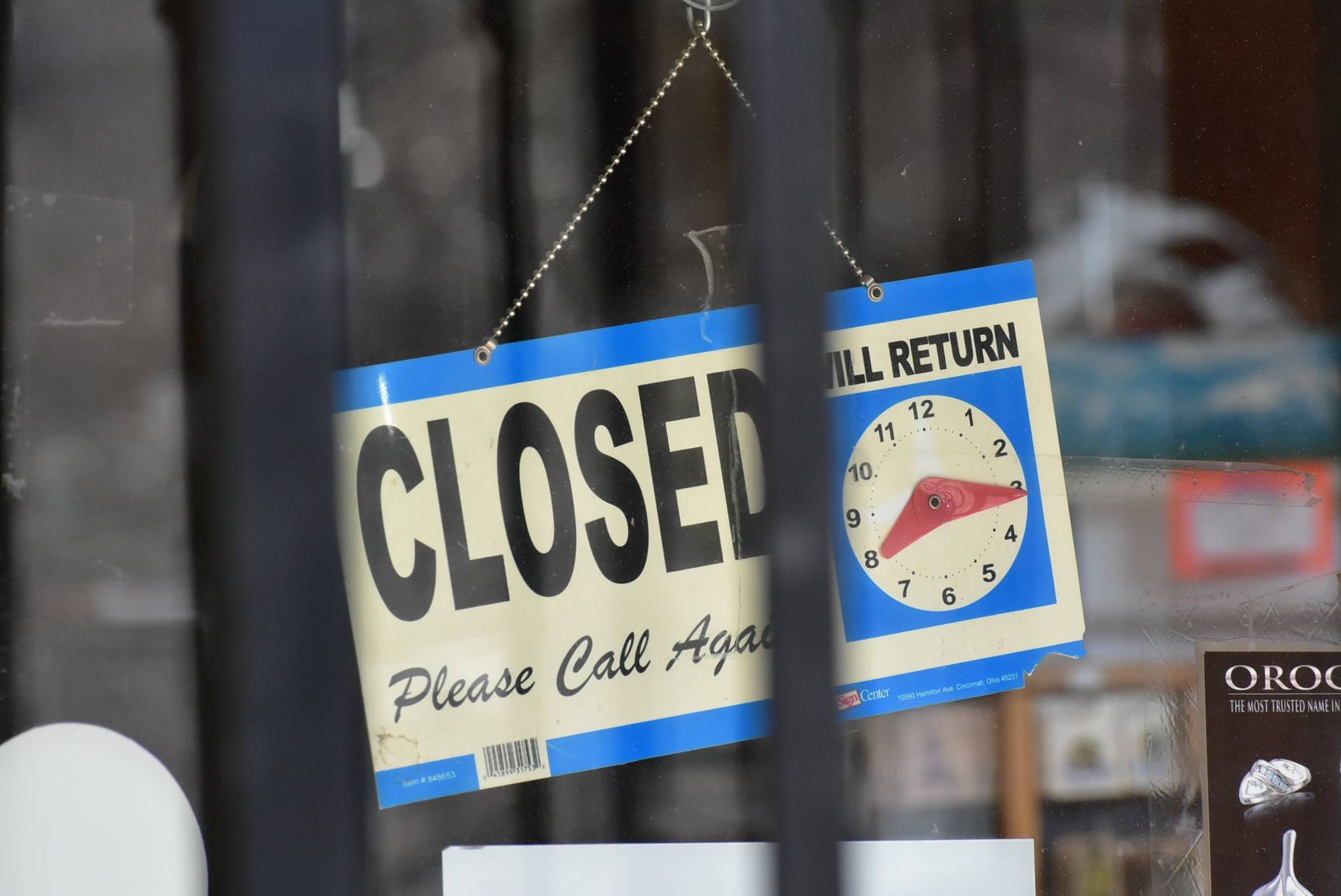With Southeast Alaska leading the state in year-over-year job loss, according to state data, local officials are trying to find the best way to spend the more than $53 million in federal aid money allocated to the City and Borough of Juneau by the state.
The federal government injected billions of dollars into the economy but many of the programs meant to prop businesses up through the coronavirus pandemic may come to an end soon. Congress has additional aid legislation in the works, but cities and states are using their own resources to inject money into the economy in the hopes that federal money will eventually fill the gap.
“‘Is Congress going to do something?’ is a pretty big ‘if’,” said Max Mertz, co-chair of the Juneau Economic Stabilization Task Force set up to help manage the economic fallout from the pandemic.
“We’re in an election year and I don’t think we can’t count on Congress doing anything,” Mertz said.
Uncertainty in Washington has local governments starting their own programs, like Juneau’s small business grant program, which is giving money to local businesses affected by the pandemic. That program was started before there was federal money to pay for it, but that’s because federal officials assured the public help was on the way. Congress did indeed send help and passed the largest spending bill in history, the CARES Act, but how and where that money gets spent is a complicated process.
[First responder salaries, child care and business grants are top priority for CARES money]
“We’re working to get the second and third phase of this business grant program approved by the (CBJ) Assembly,” Mertz said Tuesday in an interview. “(The Paycheck Protection Program) has had the effect of putting a lot of liquidity in the economy, and that at some point is going to run out.”
Businesses have been using PPP loans to pay employees and many Americans have been relying on $600 unemployment checks from the federal government as their employers were forced to close due to the pandemic. The unemployment benefits are set to end July 31.
In Alaska, the number of people claiming those checks has been declining, according to Lennon Weller, an economist with the Alaska Department of Labor.
“There were over 63,000 individuals into late June that were still filing for benefits,” Weller said. “That’s significantly higher than prior years. We’re still seeing quite an elevated level of initial filings, those did peak in late March, in a single week there 14,000 claims.”
Weekly unemployment claims in the state fell to the 4-5,000 range, Weller said, but according to a July report from DOL, employment statewide is still down 12.2%, and in Southeast it’s down 17.7%. Juneau’s economy is more diversified, Weller said, so it’s been less affected, but the region’s dependency on tourism means the capital city has been hit hard.
Statewide, monthly unemployment claims this year have been in the thousands, Weller said, while in previous years they were in the hundreds.
“Southeast is fairly unique, certainly seasonal and highly driven by tourism,” Weller said, “and we’re comparing to a period normally when employment is ramping up significantly. Essentially not having a tourist season sucked out over a million passengers who would’ve passed through Southeast Alaska.”
[City needs to weigh role in social services, manager says]
Recognizing what no tourism would mean, the Assembly started social programs with the assurance federal dollars would cover the costs. A local rental assistance program was started and initially funded through the city’s affordable housing fund. But with federal money in the bank, Assembly members will vote Wednesday whether to both transfer those payments from city to federal funds, and extend the program through the end of the year. Given the public need for assistance created by the pandemic, the city is considering offering social services it had never offered before, like unemployment, according to City Manager Rorie Watt.
Juneau will receive a total of $53 million in three payments and that money is already being spent. According to city data, $26 million of has been “implemented” mostly to support emergency operations in response to the pandemic. The city has $19 million “in progress” mostly going to grants for small businesses and nonprofits and there’s $5.5 million in “anticipated” costs for schools and buildings. More than $2 million remains to be disbursed, according to city data.
The Assembly Finance Committee will meet Wednesday, immediately following a special Assembly meeting at 5 p.m. The Finance Committee will receive a presentation on the proposed allocation of CARES Act money and discuss what changes could be made to the planned use of funds.
Assembly members are meeting Wednesday for the vote to extend the rental assistance program and hear an ordinance that would mandate cloth face coverings in certain public settings. The Assembly would not vote on the actual mandate Wednesday, only to move the ordinance forward for further consideration.
• Contact reporter Peter Segall at psegall@juneauempire.com. Follow him on Twitter at @SegallJnoEmpire.

